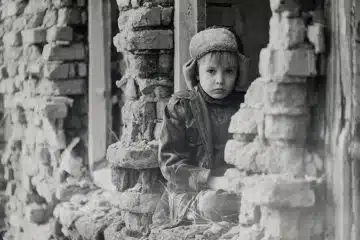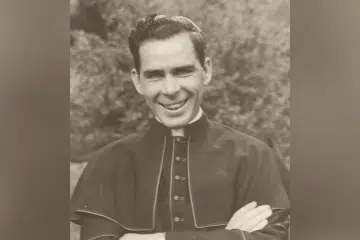The Catholic Moment: Honoring as a family virtue
Wednesday, June 17, 2009
By Sister Carol Gaeke, O.P.
After a session in the RCIA about the Trinity one catechumen remarked, “I still don’t get it.”
Understandably, as we are in the realm of mystery. The Trinity provides deep content for reflection on relationships, especially familial. Since all of life is relational, it asks the question: How do persons relate? How do family members relate?
Many think that the fourth commandment is about children obeying their parents. (How many of us remember the generic confession line of ‘I disobeyed my parents’?) But the commandment about honoring our parents was for adults to honor and take care of their elderly parents. Without their children to care for them in old age, they would die. Taking care of them was how they were to be honored.
Jesus’ relationship with His Father is complex honoring — doing His Father’s will. This did not mean choosing a violent death, but in living a life that resulted in a violent death. Honoring His father meant announcing the reign of God — a very unpopular message. The poor were be raised up, the powerful dispossessed, the enemy received in friendship. The powers of religion and state were to be upended. The message was that love was to be transformative, that it could cause a person to abandon oneself for others, for justice, for family and state it in a whole new way. Jesus’ relationship with His father was to show us the way to honor God.
Recently Nnotombi Naomi Tutu, the daughter of Archbishop Desmond Tutu, was interviewed on NPR. She talked about how hard it was growing up with death threats against her father and her family, but that living in that family environment was profoundly transformative. Today she is an internationally recognized human rights activist.
The message her father preached challenged her to honor him and his example in spite of fear of death. Jesus honored His Father by not fleeing into the Judean desert on a dark, fearful night in Jerusalem. He did not flee from the message He was to preach.
Honoring one’s parents in these situations is not easy. Children think obeying is tough. They have no idea the harder part lies ahead. Honoring has to be evaluated in terms of what is asked of them. Will it call them to follow a hard path and go beyond themselves or will it call them to distance themselves from parents who asked that which will cause distress to their personhood?
Sometimes children go beyond the confines of parent’s expectations into vistas they don’t approve of. I knew two fine teens who wanted to be teachers. Bobby’s father was a lawyer and felt teaching was beneath his dignity.
Forcing Bobby into a pre-law program, for which he had no desire, had the consequence of alienating him from his father and dropping out into the drug scene.
Meg also wanted to be a teacher but her engineer father said she would never make any money and wouldn’t pay for college for her if that was her goal. As a consequence she lost her dream and never found a new one.
Honoring in families, in relationships, works both ways. It is Trinitarian. And it is challenge. The Trinity is about love. Pretty simple and yet totally a mystery.











